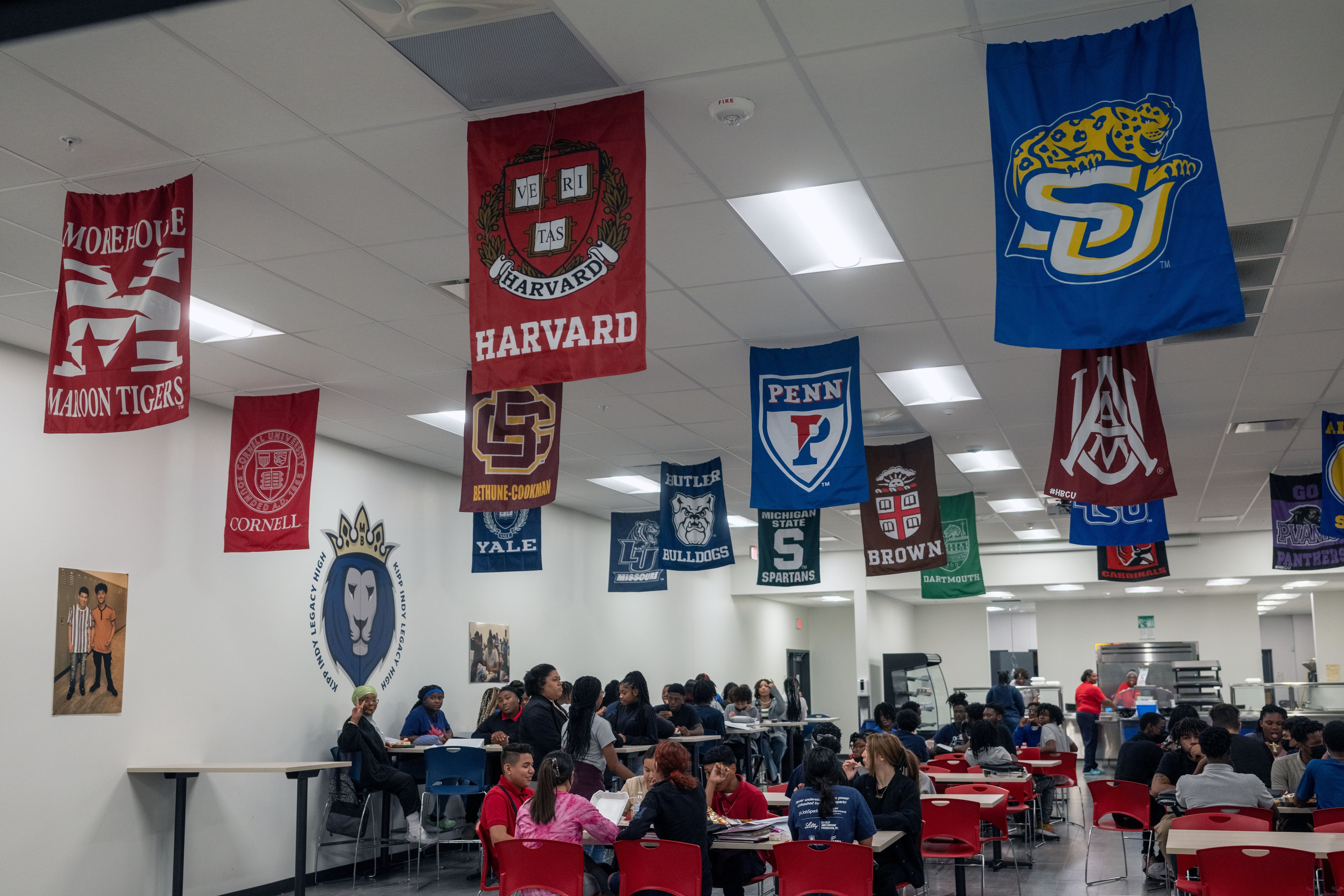Indiana’s 2023 legislative session is under way, and state legislators have introduced more than 100 new education bills and bills impacting schools and students. For the latest Indiana education news, sign up for Chalkbeat Indiana’s free newsletter here.
As higher education battles low enrollment and perceptions that it is too expensive, lawmakers and others are working to make sure more Indiana students know about the financial aid available to them.
This Sunday is College Goal Sunday, a free in-person event at locations around the state, to help families fill out the Free Application for Federal Student Aid, commonly known as the FAFSA. And earlier this week, lawmakers advanced a bill that would require most students to fill out the form.
The legislation and the College Goal event highlight arguments from public officials that millions of dollars in aid is being left on the table, money that could change a student’s decision about postsecondary education.
A new survey released earlier this month by the Indiana Department of Education shows that roughly 70% of high schoolers in Indiana plan to pursue education after high school.
But just 53% of students in Indiana’s Class of 2020 went on to college, state data released last summer showed. And only 27% of parents say it’s affordable, per the new survey.
Filling out the FAFSA would show Hoosier families more aid options and potentially change that, in turn, improve Indiana’s college going rate, leaders argue.
As of Feb. 10, roughly a third of Indiana’s Class of 2023 had completed the FAFSA, per Form Your Future, a national tracker of FAFSA completion.
College Goal Sunday offers FAFSA help
Students need to fill out the FAFSA to be considered for federal financial aid, such as Pell Grants. But the form is also used by many states and colleges as well as private aid providers to determine eligibility for state and school grants, scholarships, and more.
In Indiana, the deadline to file the FAFSA for state aid is April 15.
Senate Bill 167 would require all students, with certain exceptions like for those at some nonpublic schools and for students whose parents sign a waiver, to complete the FAFSA by that state deadline during their senior year. The Indiana Senate passed the bill earlier this week and it now awaits action from the Indiana House.
College Goal Sunday started more than 30 years ago and is now a model used in other states.
The event comes around like clockwork, and families can count on it as a way to get the form off their to-do list, said Bill Wozniak, co-chair of the event.
“The FAFSA is so critical and the most important form,” he said.
But he knows that despite strong interest in education after high school, many Hoosiers are uncomfortable with the financial aid process.
He’s heard it in his role leading College Goal Sunday, and as he’s traveled the state leading an advisory team from INvestED, a nonprofit that provides free financial aid advising to students and families. And a survey from INvestED shows the same.
Nearly 90% of Hoosiers see a value in education beyond high school, but 62% say understanding the process of paying for college is not easy, per the survey results released earlier this month. And of people who don’t enroll, 28% said it was because of the cost.
When it comes to FAFSA, families and students are often worried that they are on the hook for student loans just by filling out the form, or that they make too much money or it’s too difficult to fill out, he said.
But Wozniak stressed that the FAFSA doesn’t require people to take out loans and is a way for many people to qualify for aid beyond what’s earmarked for students from low-income backgrounds.
And events like College Goal Sunday can help not just by answering questions, but by calming nerves, he said.
MJ Slaby oversees Chalkbeat Indiana’s coverage as bureau chief and covers higher education. Contact MJ at mslaby@chalkbeat.org. Chalkbeat Indiana partners with Open Campus on higher education coverage.






